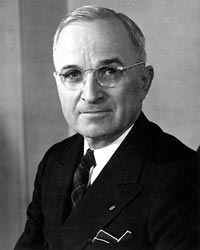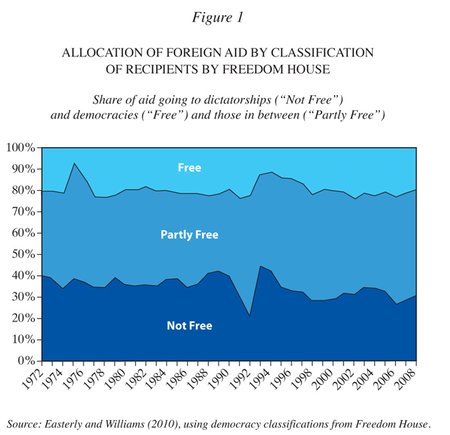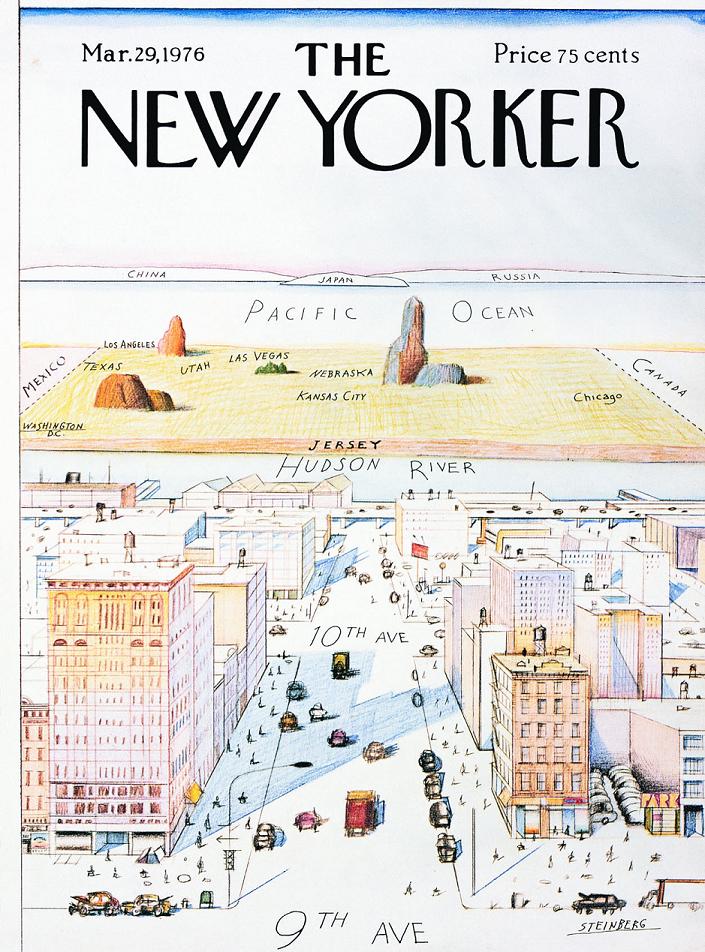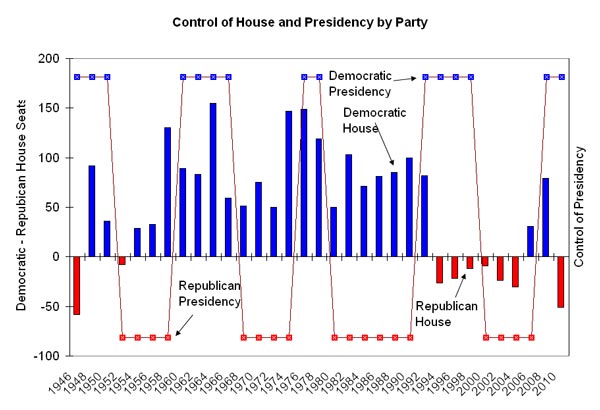 Truman’s Inaugural Address on January 20, 1949 is usually taken as the beginning of foreign aid, after it included these stirring words:
Truman’s Inaugural Address on January 20, 1949 is usually taken as the beginning of foreign aid, after it included these stirring words:
Fourth, we must embark on a bold new program for making the benefits of our scientific advances and industrial progress available for the improvement and growth of underdeveloped areas…More than half the people of the world are living in conditions approaching misery….For the first time in history, humanity possesses the knowledge and the skill to relieve the suffering of these people…. And…we should foster capital investment in areas needing development.…this program can greatly increase the industrial activity in other nations and can raise substantially their standards of living.
Foreign Aid was at first referred to as the Point Four program because it was the 4th point in the speech. I recently stumbled across an old article by a participant in the 1949 events, Louis J. Halle.[1]
The events were roughly these. Halle worked for the State Department and one evening in 1948 had a conversation with the Deputy Director of American Republic Affairs (DDARA) about a program of technical assistance that only covered Latin America. The two agreed something similar could possibly be useful other places.
In November 1948, the President’s speech-writing assistant asked the State Department for some proposals to include in the Inaugural Address. A meeting happened and they came up with three proposals. The Director of Public Affairs called for additional ideas. The DDARA remembered the evening conversation and said something like "how about a program of technical assistance for undeveloped countries, like that in Latin America?" The fourth proposal was noted and the meeting adjourned.
The proposals went through the regular clearance procedures in the State Department. The fourth proposal was killed in the clearance process. Halle thought it was probably because officials thought it would be irresponsible to announce such a program when nobody had a clue about what it would mean in practice. So only the first three points were sent over to the White House for the Inaugural Address.
Then the speechwriting assistant called the State Department’s Director of Public Affairs back a few days later complaining that the three proposals were boring. The President wanted something original. As Halle describes it:
At this juncture, without proper time for reflection, the Director of Public Affairs found himself standing on the shore of his own Rubicon. He took a deep breath, and crossed over. There had been a fourth point, he said, but it had been thrown out. What was it? The Director told what it was. “That’s great,” said the voice from the White House, and “Point Four” went back in again.
Halle says nobody gave the matter another thought until the delivery of the address. To continue his narrative:
“Point Four” was a public-relations gimmick, thrown in by a professional speech-writer to give the speech more life. When the newspapers dramatized it in their principal headlines on the morning of January 21, the White House and the State Department were taken completely by surprise. No one – not the President, not the Secretary of State, not the presidential assistant or the Director of Public Affairs –knew any more about “Point Four” than what they could read for themselves in the meager and rather rhetorical language of the speech….It was only now, after the Inaugural Address had been delivered and the “bold new program” acclaimed all over the world, that machinery was set up in the government to look into the possibilities of such a program and make plans.
President Truman was asked six days later about background on the origin of Point Four. He replied with a good story that had no relation to the reality:
The origin of Point Four has been in my mind, and in the minds of the Government, for the past two or three years, ever since the Marshall Plan was inaugurated. It originated with the Greece and Turkey propositions. Been studying it ever since. I spend most of my time going over to that globe back there, trying to figure out ways to make peace in the world.
We want always to think our leaders take intentional, decisive actions , especially on something so important as foreign aid. It's hard to say in this case to what extent it was an "accident," or whether the fundamentals made aid an accident waiting to happen. But it's good for the soul to realize that policies can happen by accident more than we are usually willing to accept.
[1] ON TEACHING INTERNATIONAL RELATIONS , Virginia Quarterly Review, 40:1 (1964:Winter) p.11. I found the reference in Gilbert Rist's wonderful book,
The History of Development: from Western Origins to Global Faith (3rd edition 2009)
 From Aid to Equality
From Aid to Equality















